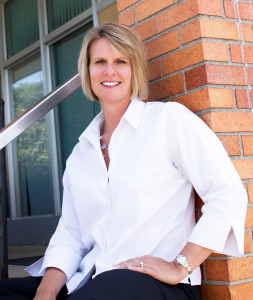
Today, we’re doing something a little different on the Dental City blog. We have the privilege of sharing an article written by Dr. Lisa Knowles, DDS, founder of Intentional Dental Consulting and writer at the dental blog Beyond 32 Teeth.
Dr. Knowles spent 15 years in private practice before launching Intentional Dental Consulting, a business that is flourishing under her sharp business skills and excellent human relations know-how. Besides Beyond 32 Teeth she also regularly contributes to other dental publications. But, without further ado, we’ll let Dr. Knowles take it away.
Personal Finances: Are You Ready, Doctor?
Top 10 Financial Muck Ups Dentists Do:
- Choose their novice neighbor or cousin to be their financial advisor
- Meticulously look over their business finances and slack off with their personal finances
- Forget to look on the SEC’s website to see if their financial planner is accredited
- Buy a house with a less than 20% down payment and pay PMI (private mortgage insurance)
- Buy a house based on what their friends and neighbors think dentists should buy or based on what they hope to earn in the future
- Fail to have an emergency fund to cover 2.5 times their monthly spending
- Think they are bullet proof. Choose to avoid disability insurance
- Defer a retirement plan–both financially in contributions and in the big picture of actually having a future plan for when their bodies or minds stop wanting to do dentistry
- Avoid family conflicts and conversations to appease everyone or to take total control of the finances, thus leading to over-scrimping or over-spending
- Have no financial advisor
 How did you do? Any financial muck ups? At certain points in my career, I did without financial advising. I had no money to be advised about. Then, I started to incur debt and earn an income. The advising became more necessary, and I am glad I did seek help. I saved myself a lot of money, and a lot of stress. In my recent interview with Sharon Weaver from Mission Financial Planning, I gleaned several tips about personal finances. Many of them are listed above.
How did you do? Any financial muck ups? At certain points in my career, I did without financial advising. I had no money to be advised about. Then, I started to incur debt and earn an income. The advising became more necessary, and I am glad I did seek help. I saved myself a lot of money, and a lot of stress. In my recent interview with Sharon Weaver from Mission Financial Planning, I gleaned several tips about personal finances. Many of them are listed above.
One not listed above has to do with choosing a financial planner. I hesitated for a long time to choose a financial planner because I could not find one I trusted. I detested the conflict of interest found in many financial advisor/client relationships. It made me uncomfortable to know my advisor was getting a bonus or percentage from the investments he or she recommended. So, when I found Sharon, a fee-for-service type of planner, I immediately felt better with her guidance. She charged me based on an hourly rate or a fixed rate. There is less of a conflict of interest. My tip would be to look at all of the financial planner options, and consider one willing to work at a disclosed fee rather than a percentage of your portfolio. In some cases, this cannot be avoided, but in many situations, there are other options.
Finally, I want to pose a couple of questions to my colleagues in the medical profession: As dentists and dental professionals, we often know our key practice indicators, but do we know our key home indicators? What do we spend at home? What do our spouses and kids spend? All of these choices at home make a big difference in our future success and in our future stress. Not only do we need to know how much we earn in our offices, but we also need to know how much we spend once we get home.
I once listened to Linda Miles, a well-known dental practice consultant. She asked, “How many patients are you losing out the back door?” In other words, how many patients are you losing and don’t even know they are gone because your recare system is failing to look at patient retention. I would ask the same thing about your personal finances. You know how much comes in the front door, but do you know how much money goes out the back door? Do you know where it went or how it got out the door? Just like with new patients and patient retention, it’s important to track both sides of the practice or house. We have to know what comes in and what goes out to be successful dentists and dental professionals–both professionally in our practices and personally in our homes.
You can find the original article posted on Dr. Knowles’ blog here.

